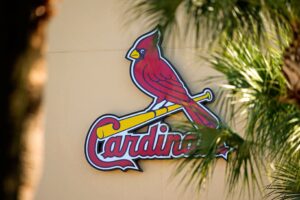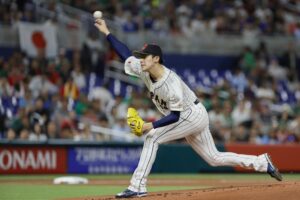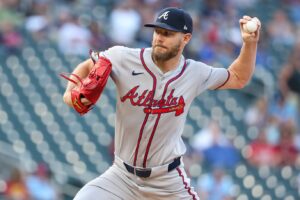For several years, the Hall of Fame voting process has brought forth the discussion on Billy Wagner and his place in MLB history. For 16 seasons, primarily with the Houston Astros, the closer shut down opposing lineups coming out of the bullpen. In addition to the Astros, he pitched for, and impacted, the Philadelphia Phillies, New York Mets, Boston Red Sox, and Atlanta Braves.
On the surface, his career statistics present an interesting case. He holds a 2.31 ERA and 0.998 WHIP in 903 innings pitched, with 422 saves. He has slowly been gaining more traction on the Hall of Fame ballot, but he topped out at 16.7% of the vote last season. As of Friday, he is projected under 36% this year, a great uptick, but still a long way from the necessary 75%.
HOF projections, based on @NotMrTibbs HOF Tracker.
146 public votes. pic.twitter.com/KngSkoLpJ3
— Por los 411 (@Porlos411) January 10, 2020
Part of the problem with Wagner may fall in who else pitched during his era. Mariano Rivera dominated the sport out of the bullpen for the New York Yankees from 1995-2013 and Trevor Hoffman did the same, primarily for the San Diego Padres, from 1993-2010. Both players are now enshrined in Cooperstown, having pitched record-setting careers.
The dominance, consistency, and longevity of Rivera’s career, both in the regular season and postseason, was so special, it is unfair to compare Wagner to Rivera.
However, when comparing Wagner to Hoffman, there are similarities evident and there is most definitely a case to be made. Hoffman was elected in his third year on the ballot, and he was always a case of when, not if, in regards to his candidacy, where Wagner has been more of an open discussion.
Production and Durability
Preventing Runs and Baserunners
Comparing the two earned run averages of Hoffman and Wagner shows an edge in favor of Billy Wagner. As noted, Wagner pitched to 2.31 ERA in 903 innings pitched. Meanwhile, Hoffman recorded a 2.87 ERA in 1,089.1 innings pitched. Wagner had a better ERA, but also had a shorter career than Hoffman.
Wagner also has the edge when it comes to allowing baserunners. His 0.998 WHIP best Hoffman’s 1.058. The margin of difference is narrower in this instance, but Wagner does prove to have allowed fewer base runners per inning than Hoffman did throughout their careers.
To further emphasize Wagner’s dominance, his 187 ERA+ is the third highest mark regardless of career innings pitched. In order to qualify for the all-time list in this statistic, a pitcher needs at least 1,000 innings pitched and Wagner fell 97 short.
Hoffman’s ERA+ is 141, a number that sits at 15th all-time. Had Wagner recorded the necessary number of innings, his ERA+ would currently only be listed behind Rivera (205). (Note: Craig Kimbrel‘s current ERA+ of 195 in 553.1 innings is the second highest, but well off of the necessary 1,000 innings, as of 2019).
Simply put, Wagner pitched 87% better than league average for the entirety of his career when adjusting for ballpark factors. He pitched 46% better than Hoffman.
Additionally, Wagner’s 11.9 K/9 and 3.99 K/BB best Hoffman’s 9.4 K/9 and 3.69 K/BB.
Innings Pitched
Wagner had a lengthy career. However, his 903 innings pitched would prove to be the second lowest total of any Hall of Fame pitcher. The only pitcher with less MLB innings would be Satchel Paige, but Paige did not debut in MLB until he was 41.
Hoffman, as it stands, has the third lowest innings pitched total of any pitcher in the Hall of Fame. His career also lasted longer, leading to more innings pitched. On a per 162 game average basis, Wagner averaged 68 games pitched and 72 innings, exactly the same as Hoffman. Wagner had five seasons in which he appeared in 70 games compared to Hoffman’s three.
Clearly, Wagner is every bit as dominant and durable as Hoffman when they were at their best.
Awards and Accolades
One of the main issues with Wagner pitching in the same era as Hoffman (and Rivera) is that the saves all-time record was broken several times, none of which were by Wagner. This coming in an era where the save carried a great deal of merit for defining relief pitching success.
Hoffman became the first pitcher to record 500 and 600 saves, retiring as the all-time leader. Although Rivera passed him in 2011, this accolade cemented Hoffman’s place in MLB history, and all but guaranteed his induction.
Had Wagner’s career not coincided with Hoffman and Rivera, he would have finished with the third most saves of all time behind Lee Smith (478) and John Franco (424). Instead, his 422 saves now rank sixth (Francisco Rodriguez passed Wagner and Franco in 2016).
In terms of awards, neither pitcher won a Cy Young Award, but both had several years when they received votes for the award. Wagner had two seasons where he received votes, and he finished fourth in one of those years, sixth in the other. As for Hoffman, he received votes four times, including three, top-five finishes and two runner-up finishes.
Wagner won the NL Rolaids Relief Man of the Year award once and Hoffman twice. The award for best NL reliever now bares Hoffman’s name.
Both players were selected to seven All-Star games, and both only had two instances where they led the league in a pitching category. Hoffman twice led the league in saves while Wagner twice led in games finished.
Postseason
While success in the postseason is technically not listed as a requirement for election to the Hall of Fame, a player’s contribution to their team(s) is considered. Postseason performance can certainly fall under that category.
Hoffman did not pitch great in his only World Series appearance in 1998. He came in against the Yankees and blew the save on route to getting swept. This appearance does skew his postseason numbers slightly. Aside from that game, he accumulated 11 postseason innings and only allowed three earned runs and ten total baserunners.
Wagner, on the other hand, continuously failed in the big moment. While Hoffman has one bad outing that skews his postseason numbers, Wagner had one good series that skewed his numbers.
This series prevented his numbers from being worse than they actually are. That one series was the 2006 NLDS where he pitched three scoreless innings for the Mets. Regardless, his overall postseason numbers are a 10.03 ERA and 1.971 WHIP in 11.2 innings pitched.
Outlook
From a statistical standpoint, Billy Wagner certainly deserves more consideration than he has previously received. Pitching in Rivera’s and Hoffman’s shadows plus his postseason blunders detract from his retrospective historical significance. In spite of that, the raw production is there. While it may be a smaller sample, it is impressive enough to match up favorably with Hoffman and warrant more traction on the ballot.
Main Photo: Embed from Getty Images






